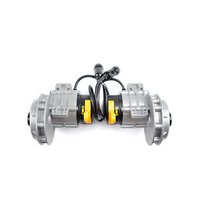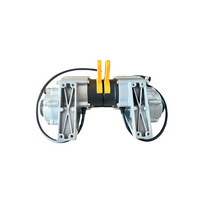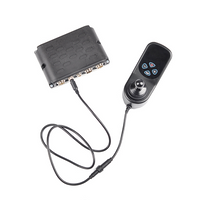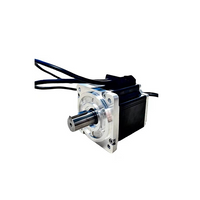- Home
-
- TF Integrated Workstation
- TT Integrated Station
- TS Single-Person Station
- TO Single-Person Station
- Advanced Office Table
- Manager Table
- Odette Conference Table
- Lifting White Board
- Lifting Podium
- Working Port
- Zen Standing Desk
- Lifting Coffee Table
- Home Standing Desk
- Nature Standing Desk
- Invictus Gaming Desk
- Study Desk
-
-
- Electric Hospital Bed
- Image Equipment
- Examination Bed/Clinic Bed
- Operation Table and Chair
- Infant Incubator
- Independent Weighing System
- Home Care Bed
- Patient Lift
- Wheelchair
- Toilet Lift
- Bath Lift
- Shower Trolley
- Smart Rollator Walker
- Ophthalmic Workstation
- Treatment Chair
- Facial Chair
- Traction Table
- Massage Chair
- OT Training Equipment
- Stand-up Application
- Rehabilitation Robot
-
-
- Photovoltaic Application
- Photothermal Application
- Energy Storage Container
- Tractor
- Seeder
- Fertilizer Spreader
- Harvester
- Rotary Cultivator
- Climate Control System
- Automatic Feeding System
- Excavator
- High Altitude Work Platform
- Garbage Truck
- Street Sweeper
- AMR Automated Guided Vehicle (AGV) and Autonomous Mobile Robot (AMR)
- Forklift Accessories
- Palletizing Collaborative Robots
- Packaging Machine
-
-
Most Powerful Wheelchair Motor and Controller (Beginner's Guide)
Views: 0 Author: Site Editor Publish Time: 2023-12-14 Origin: Site
What is an Electric Wheelchair?
An electric wheelchair, also known as a power wheelchair or motorized wheelchair, is a mobility device powered by electric motors rather than manual propulsion. It is designed to provide mobility assistance for individuals with limited strength or dexterity in their arms and upper body. Electric wheelchairs offer a more independent means of transportation for people with mobility impairments, allowing them to move around with ease.

Key Features of Electric Wheelchairs Include:
Electric Motors: These wheelchairs are equipped with electric motors that power the wheels, enabling the user to move forward, backward, turn, and navigate various terrains.
Control System: Electric wheelchairs come with a control system, typically a joystick or other user-friendly interface, that allows the user to operate the chair with minimal physical effort.
Rechargeable Batteries: The power source for electric wheelchairs is usually rechargeable batteries. The batteries provide the necessary energy to run the electric motors, and users can recharge them as needed.
Seating Options: Electric wheelchairs offer various seating options, including customizable cushions and backrests, to provide comfort and support for users with different needs.
Adjustable Features: Many electric wheelchairs have adjustable features, such as seat height, leg rests, and armrests, to accommodate individual preferences and maximize user comfort.
Maneuverability: Electric wheelchairs are designed for excellent maneuverability, allowing users to navigate tight spaces, turn in place, and travel indoors or outdoors.
Safety Features: Modern electric wheelchairs often come with safety features, such as anti-tip mechanisms, stability controls, and programmable speed limits, to enhance user safety.
Electric wheelchairs provide an important means of transportation and independence for individuals with mobility challenges. They are suitable for a wide range of users, including those with spinal cord injuries, neuromuscular disorders, and other conditions that limit their ability to use manual wheelchairs. The availability of different models with various features allows users to choose an electric wheelchair that best suits their individual needs and lifestyle.
How Many Volts Does an Electric Wheelchair Motor Have?
The voltage of electric wheelchair motors can vary depending on the specific model and design of the wheelchair. In general, electric wheelchair motors typically operate on voltages ranging from 12 volts to 48 volts. The voltage is determined by the system's power requirements and the design choices made by the wheelchair motor manufacturer.
Here Are Some Common Voltage Ranges for Electric Wheelchair Motors:
12 Volts: Some lightweight or compact electric wheelchairs may use 12-volt motors, especially those designed for indoor use or short-distance travel.
24 Volts: Many standard electric wheelchairs are equipped with 24-volt motors. This voltage provides a balance between power and energy efficiency and is commonly found in mid-range wheelchair models.
36 Volts: Wheelchairs with more powerful motors, often used for outdoor mobility and rougher terrains, may operate on 36 volts.
48 Volts: High-performance electric wheelchairs designed for extended outdoor use or advanced features may use 48-volt systems. These wheelchairs can offer increased power and range.
It's crucial to note that the voltage of the motor is just one aspect of the wheelchair's overall electrical system. Other factors, such as the battery capacity, motor efficiency, and controller design, also play a significant role in determining the wheelchair's performance. Additionally, wheelchair manufacturers may use different voltage configurations based on their design choices and the intended use of the wheelchair.
Can an Ordinary Wheelchair Be Equipped With a Motor?
Yes, it is possible to retrofit an ordinary manual wheelchair with a motorized kit, converting it into a motorized or power wheelchair. This conversion can provide individuals with greater independence and the ability to navigate more easily, especially if they have difficulty propelling a manual wheelchair on their own.
There are various motorization kits available in the market designed for converting manual wheelchairs. These kits typically include an electric motor, a battery pack, a joystick or control unit, and the necessary mounting hardware. The installation process may require some mechanical adjustments and modifications to the wheelchair, so it's recommended to have it done by a professional or someone with experience in wheelchair modifications.
Here are some key points to consider when converting a manual wheelchair to a motorized one:
Type of Kit: There are different types of motorization kits available, ranging from rear-wheel drive to front-wheel drive or mid-wheel drive systems. The choice depends on factors like the user's preferences, the intended use, and the wheelchair's compatibility.
Battery Type: Motorized wheelchairs typically use rechargeable batteries. Consider the type and capacity of the battery included in the kit, as it will impact the wheelchair's range and performance.
Control System: The control system, often in the form of a joystick, determines how the user interacts with the motorized wheelchair. Ensure that the controls are user-friendly and suited to the individual's needs.
Wheelchair Compatibility: Not all wheelchairs are suitable for motorization. It's important to check whether the kit is compatible with the specific model and design of the manual wheelchair.
Installation: While some motorization kits are designed for user installation, it's advisable to seek assistance from professionals or technicians with experience in wheelchair modifications to ensure safety and proper functionality.
Converting a manual wheelchair to a motorized one can significantly improve the mobility and independence of individuals with mobility challenges. Before proceeding with the conversion, individuals should carefully research and choose a motorization kit that best meets their needs and preferences. Consulting with healthcare professionals or mobility specialists can also provide valuable guidance in making an informed decision.
What Kind of Motor Is Best for Electric Wheelchairs?
Choosing the best motor for electric wheelchairs involves considering factors such as power, efficiency, control, and reliability. Jiecang, a reputable manufacturer in the field of electric actuators and related products, may offer suitable electric wheelchair motors. While specific motor models may vary, some key features to look for in a motor for electric wheelchairs include:

Brushless DC Motor (BLDC): Brushless motors are often preferred for electric wheelchairs due to their efficiency, reduced maintenance needs, and longer lifespan compared to brushed motors.
High Torque: Wheelchair motors should provide sufficient torque to handle varied terrains and slopes, ensuring a smooth and powerful ride for the user.
Variable Speed Control: A motor with variable speed control allows users to adjust the wheelchair's speed based on their preferences and the environment, providing flexibility in different situations.
Quiet Operation: A quiet motor is desirable for user comfort and to minimize noise disturbance in various settings.
Compact and Lightweight Design: The motor should be compact and lightweight to avoid adding excessive weight to the wheelchair. This is crucial for portability and maneuverability.
Energy Efficiency: An energy-efficient motor contributes to longer battery life, extending the range of the wheelchair between charges.
Integration with Control Systems: Compatibility with advanced control systems, such as joystick controls or other input devices, ensures a seamless and user-friendly experience for individuals operating the wheelchair.
Durability and Reliability: The motor should be built with durable materials and designed to withstand the rigors of daily use. This ensures a reliable and long-lasting performance.
It's recommended to consult with Jiecang or other reputable suppliers for specific motor models designed for electric wheelchairs. Jiecang, known for its expertise in electric actuators and motion control solutions, may provide motors that align with the mentioned criteria. Additionally, Jiecang's motors may offer advanced features and customization options to cater to the specific needs of electric wheelchair users.
When choosing a motor, it's essential to consider the specific requirements of the wheelchair and the preferences of the user. Seeking guidance from healthcare professionals or mobility experts can also help ensure that the chosen motor meets safety standards and provides an optimal user experience.
Related Articles
QUICK LINKS
























